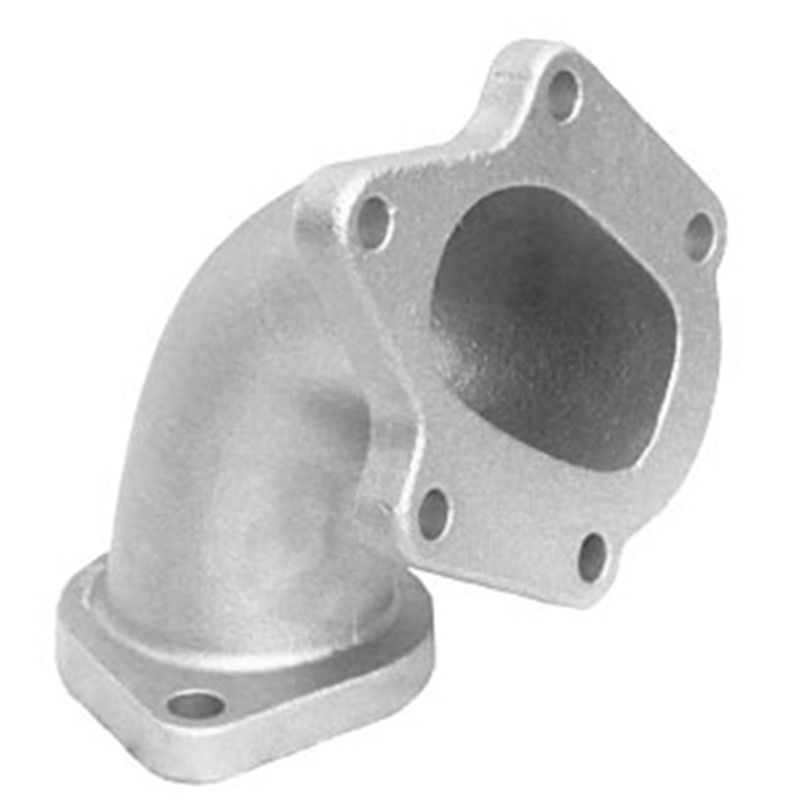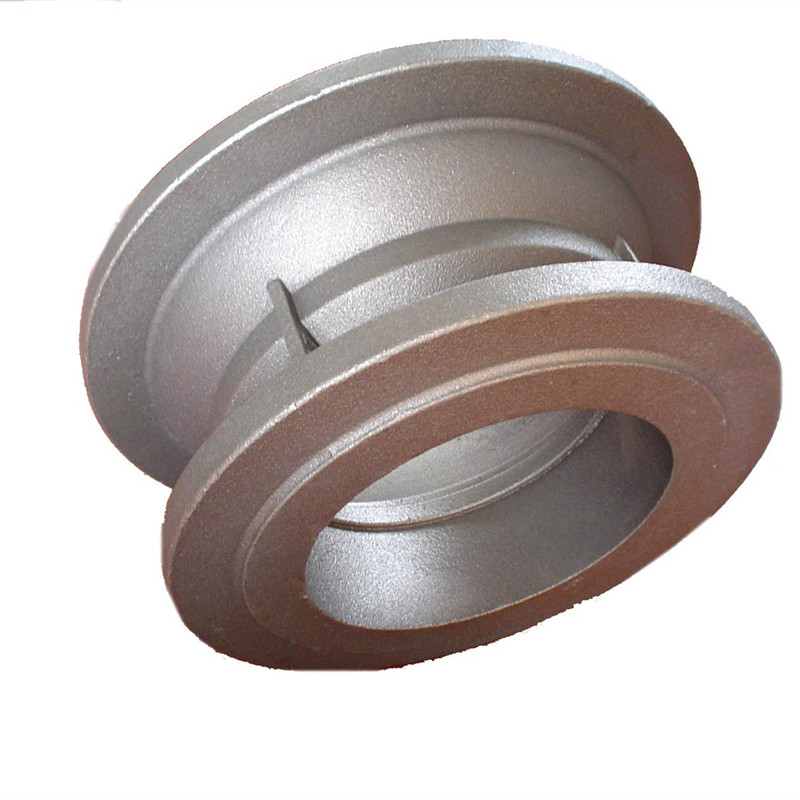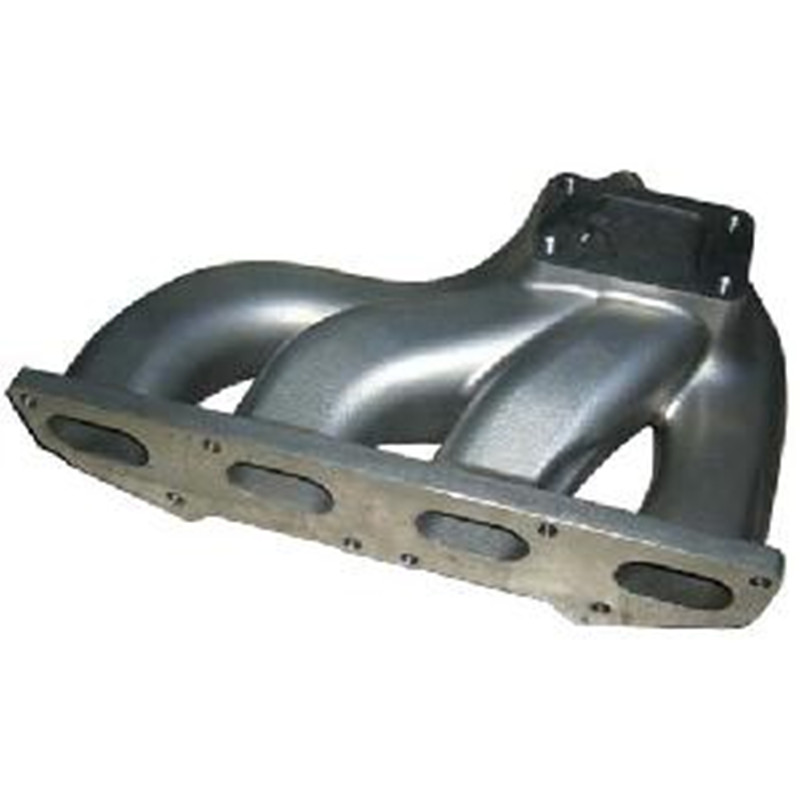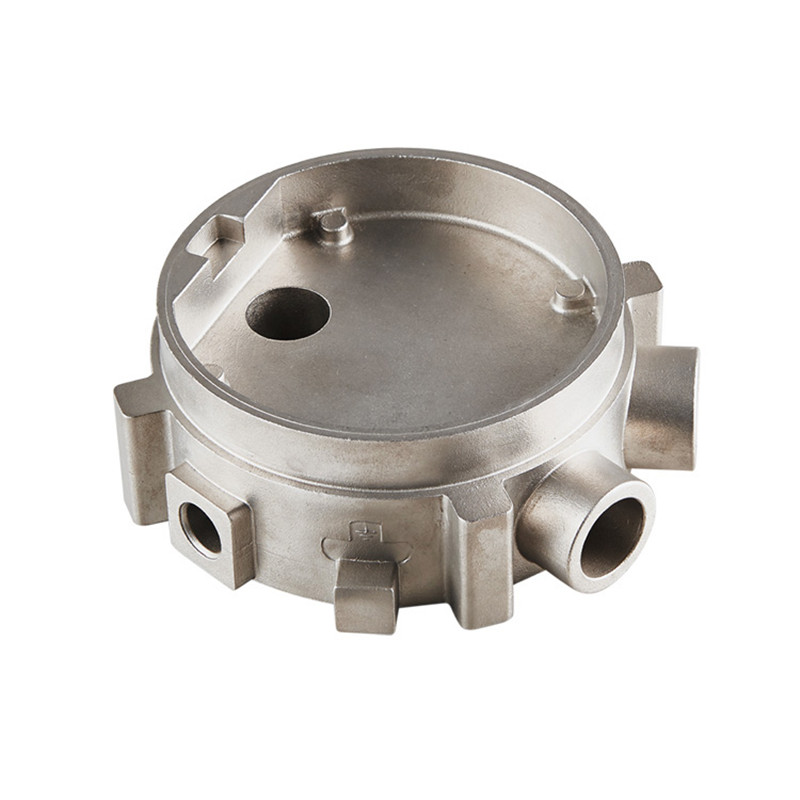Unlocking Industrial Potential with Advanced OEM Precision Casting Solutions
In the demanding landscape of modern manufacturing, the pursuit of components with superior mechanical properties, intricate geometries, and exceptional surface finishes is paramount. This is precisely where OEM precision casting emerges as a cornerstone technology, offering unparalleled advantages over traditional manufacturing methods. As a highly specialized investment casting technique, it enables the mass production of complex, near-net-shape components from various alloys, significantly reducing material waste and post-processing requirements. Our expertise lies in delivering comprehensive OEM Service Stainless Steel Precision Casting solutions, meticulously engineered to meet the stringent demands of diverse industrial applications. We understand that precision is not merely a feature but a fundamental requirement in sectors ranging from critical infrastructure to high-performance machinery. Our commitment extends beyond mere production; we partner with clients to provide bespoke casting solutions that optimize performance, enhance durability, and deliver long-term value. This process leverages advanced metallurgical knowledge and sophisticated manufacturing controls to ensure every component adheres to the highest global standards, including ISO and ANSI specifications. The inherent flexibility of precision casting allows for the creation of components that would be cost-prohibitive or impossible to achieve through machining alone, especially when dealing with hard-to-machine alloys. Furthermore, the inherent grain structure achieved through investment casting contributes to superior strength and integrity, crucial for parts subjected to high stress or corrosive environments. We continuously invest in research and development, integrating the latest advancements in casting technology to stay at the forefront of the industry. This proactive approach ensures our clients benefit from cutting-edge solutions that drive innovation and efficiency in their respective markets.
The global market for precision casting is witnessing robust growth, driven by increasing demand from industries such as automotive, aerospace, medical, and energy, all seeking lightweight, high-strength, and high-precision components. Trends indicate a strong shift towards advanced materials and more complex designs, necessitating sophisticated casting techniques. Specifically, the demand for precision casting stainless steel components is surging due to their inherent corrosion resistance, excellent mechanical properties, and aesthetic appeal, making them ideal for challenging environments like petrochemical plants, marine applications, and food processing equipment. Innovations in additive manufacturing, while complementary, often lack the cost-effectiveness and scalability for high-volume production of certain metal components compared to advanced precision casting. The integration of digital technologies, such as simulation software for mold design and solidification analysis, is further enhancing the accuracy and efficiency of the oem precision casting process, minimizing defects and accelerating time-to-market. Environmental regulations are also influencing the industry, pushing manufacturers towards more sustainable practices, including material recycling and energy-efficient processes. Our operations are aligned with these global trends, focusing on eco-friendly methodologies and sustainable material sourcing wherever possible. The adaptability of oem precision casting to various alloy compositions, from standard stainless steels (304, 316, 17-4PH) to superalloys, positions it as a versatile manufacturing method capable of addressing a wide spectrum of functional requirements. This adaptability, combined with our robust quality control systems, ensures that our clients receive components that are not only dimensionally accurate but also possess the precise metallurgical characteristics required for their specific applications, guaranteeing optimal performance and extended service life in critical operational contexts.
The Comprehensive OEM Precision Casting Manufacturing Process
Detailed Process Flow of Lost Wax Casting
The manufacturing of OEM precision casting components, often referred to as lost wax casting or investment casting, is a sophisticated multi-step process that guarantees exceptional accuracy and surface finish. It begins with the creation of a master die, typically from aluminum or steel, which is used to inject wax patterns. These wax patterns are precise replicas of the final component, accounting for shrinkage. Multiple wax patterns are then assembled onto a central sprue, forming a ‘tree’ or cluster, which facilitates simultaneous casting of numerous parts. This assembly is then dipped into a ceramic slurry, followed by a coating of fine refractory sand. This dipping and stuccoing process is repeated multiple times, with drying periods in between, to build a robust ceramic shell around the wax assembly. The shell’s thickness and integrity are crucial for handling the molten metal. Once the shell is sufficiently cured, it is placed into a high-temperature furnace, where the wax melts out, leaving behind a hollow ceramic mold. This step, known as de-waxing, is critical and gives the process its “lost wax” moniker. The molten metal, often stainless steel precision casting alloys like 304, 316, or specialized duplex steels, is then poured into the preheated ceramic mold. Preheating the mold ensures the metal flows smoothly and prevents thermal shock. After the metal solidifies and cools, the ceramic shell is mechanically removed through processes like vibratory hammering or water blasting, revealing the cast components. These components are then cut from the sprue, and any gate remnants are removed. Post-casting operations include various finishing processes such as grinding, shot blasting for surface improvement, and heat treatment to achieve desired mechanical properties like hardness and tensile strength. Our comprehensive approach ensures that every stage, from wax injection to final inspection, adheres to strict quality protocols, guaranteeing the integrity and performance of the finished product.

Material Versatility and Manufacturing Excellence
Our OEM precision casting services encompass a wide array of materials, predominantly focusing on various grades of stainless steel due to their unparalleled corrosion resistance, high strength, and excellent formability. Common materials include Austenitic Stainless Steels (e.g., SS304, SS316, SS304L, SS316L) ideal for chemical, food processing, and marine environments due to their superior corrosion resistance; Martensitic Stainless Steels (e.g., SS410, SS420) offering high strength and hardness, often used for wear-resistant parts; and Duplex Stainless Steels (e.g., 2205, 2507) known for combining high strength with excellent resistance to stress corrosion cracking, perfect for petrochemical and offshore applications. Beyond casting, we offer integrated manufacturing capabilities including CNC machining for achieving tighter tolerances and specific features, forging for enhanced strength and metallurgical integrity in critical components, and specialized surface treatments like passivation, electropolishing, and heat treatment to optimize performance and extend product lifespan. All components undergo rigorous inspection adhering to international standards such as ISO 9001, ASTM (American Society for Testing and Materials), and ANSI (American National Standards Institute). Our quality assurance protocols include Spectrographic analysis for material composition verification, X-ray inspection for internal defects, Magnetic Particle Inspection (MPI) or Liquid Penetrant Inspection (LPI) for surface flaws, and comprehensive dimensional checks using CMM (Coordinate Measuring Machine) and gauges. The typical service life of our stainless steel precision casting components can range from 10 to over 50 years, depending on the specific application, material grade, and operational conditions, a testament to their robust design and manufacturing quality.
Application Advantages in Core Industries
Our precision casting stainless steel components find extensive application across a multitude of industries, where their inherent advantages translate into significant operational benefits. In the petrochemical sector, for instance, our corrosion-resistant valve bodies, pump housings, and fittings made from specialized stainless and duplex steels ensure longevity and safety in highly aggressive chemical environments, minimizing downtime and maintenance costs. For the metallurgical industry, components requiring extreme heat resistance or abrasion resistance, such as furnace parts or conveyor rollers, benefit from the superior material properties achieved through precision casting, leading to extended operational life and reduced replacement frequency. In the crucial water supply and drainage sector, our oem precision casting solutions provide durable and leak-proof components like impellers, casings, and pipe connectors, essential for maintaining efficient fluid transfer systems. The high dimensional accuracy of our castings also contributes to energy efficiency in pump systems by ensuring minimal clearances and smoother fluid dynamics, thereby reducing energy consumption. Furthermore, the inherent corrosion resistance of stainless steel significantly reduces the need for protective coatings or frequent replacements, leading to substantial long-term cost savings and enhanced environmental compliance. Beyond these, our products are integral to the automotive industry for high-stress engine and chassis components, in medical devices for biocompatible and sterile parts, and in general machinery for durable and complex assemblies. Our ability to cast complex internal passages and fine details without the need for extensive machining makes our parts ideal for applications where fluid flow efficiency or weight reduction is critical. This versatility and intrinsic quality underscore the value of precision casting in modern industrial applications, providing robust solutions that withstand the rigors of continuous operation and challenging conditions.
Technical Parameters and Performance Excellence
Key Specifications of OEM Precision Casting Components
The effectiveness of OEM precision casting is best understood through its specific technical parameters, which dictate the quality and suitability of components for various applications. Our typical capabilities for stainless steel precision casting include an impressive range of dimensional tolerances, often achieving CT4-CT6 per ISO 8062, which is significantly tighter than sand casting and competitive with machining for certain features, minimizing subsequent finishing operations. Surface roughness can be as fine as Ra 3.2-6.3 µm (125-250 microinches), providing an excellent finish that often requires no further processing, or minimal polishing for aesthetic or specific functional requirements. The maximum casting weight we handle typically ranges up to 50 kg for stainless steel parts, accommodating a broad spectrum of industrial components, though smaller, highly intricate parts are also our specialty. The minimum wall thickness achievable is generally around 1.5 mm, allowing for lightweight designs while maintaining structural integrity. Material hardness and tensile strength vary greatly depending on the specific stainless steel alloy selected and the heat treatment applied; for example, SS304 typically exhibits a tensile strength of 515 MPa (75 ksi) and a Brinell hardness of 201 HB max, while 17-4PH precipitation hardening stainless steel can reach tensile strengths over 1100 MPa (160 ksi) with appropriate heat treatment. These properties underscore the versatility and robustness of components produced via oem precision casting, making them suitable for high-stress, high-temperature, or corrosive environments. We employ advanced simulation software, such as solidification modeling, to predict and prevent potential casting defects, ensuring optimal metal flow and structural integrity from the outset. This predictive analysis significantly reduces prototype iterations and accelerates development cycles, translating into faster market entry for our clients’ products.

Comparative Advantage: OEM Precision Casting vs. Other Methods
When evaluating manufacturing processes for complex metal components, OEM precision casting consistently demonstrates superior advantages compared to traditional methods like sand casting or even machining from solid bar stock, especially for intricate designs or specific material requirements. Sand casting, while cost-effective for large, less precise parts, cannot achieve the dimensional accuracy or fine surface finish of investment casting, often necessitating extensive post-machining. This extra machining adds significant cost and lead time, eroding any initial cost savings. For components with complex internal passages, undercuts, or very fine details, machining from solid is often economically unfeasible or technologically impossible due to material waste and tool access limitations. Precision casting allows for near-net-shape components, drastically reducing material waste and machining time, which is particularly beneficial for expensive alloys. While forging offers excellent strength due to grain flow optimization, it is limited to simpler geometries and high-volume production, and its tooling costs can be prohibitive for custom or lower-volume parts. Conversely, the versatility of oem precision casting extends to a wide range of ferrous and non-ferrous alloys, including those that are difficult to machine, such as certain superalloys or hardened steels. The tooling for investment casting, though more expensive than sand casting, is generally less costly than progressive stamping dies or complex machining fixtures for highly intricate parts. This balance of upfront tooling cost versus per-piece production cost makes investment casting highly competitive across medium to high production volumes. Furthermore, the inherent capability to produce complex parts in a single step significantly streamlines the supply chain and reduces assembly time, offering further cost efficiencies.
| Parameter/Characteristic | OEM Precision Casting (Stainless Steel) | Typical Sand Casting | CNC Machining from Bar Stock |
|---|---|---|---|
| Dimensional Tolerance (ISO 8062) | CT4-CT6 | CT8-CT10 | CT2-CT4 (Highly precise) |
| Surface Roughness (Ra) | 3.2-6.3 µm | 25-100 µm | 0.8-3.2 µm (or finer) |
| Minimum Wall Thickness | 1.5 mm (0.06 in) | 3.0 mm (0.12 in) | Limited by tool diameter/stability |
| Complexity of Geometry | Very High (Intricate internal features) | Low to Moderate | High (but can be limited by tool access) |
| Tooling Cost | Moderate to High | Low | Low (for simple fixtures) to High (for complex jigs) |
| Material Waste | Low (Near-net shape) | Moderate (More post-processing) | High (Significant chip generation) |
| Production Volume Suitability | Medium to High (Cost-effective for batches) | Low to High (Best for large, simple parts) | Low to High (Depends on complexity & material) |
Strategic Partnerships and Customization Excellence
Selecting the Right OEM Precision Casting Partner
Choosing the appropriate OEM precision casting partner is a critical decision that profoundly impacts project success, product quality, and long-term operational efficiency. Factors beyond mere pricing, such as technical expertise, adherence to quality standards, production capacity, and responsiveness to custom requirements, must be rigorously evaluated. A reputable manufacturer, like Mingda Metals, will possess demonstrable experience in diverse industrial sectors, evidenced by a strong portfolio of complex projects involving precision casting stainless steel. Look for certifications such as ISO 9001, which signifies a commitment to consistent quality management systems, and specific material certifications like ASTM or EN, ensuring metallurgical integrity. The ability to conduct comprehensive in-house testing, from chemical composition analysis to non-destructive testing (NDT) like X-ray or ultrasonic inspection, is a strong indicator of a reliable partner. Furthermore, a transparent and collaborative design and engineering process, including DFM (Design for Manufacturability) consultation, is essential to optimize the component’s castability and performance from the outset, potentially reducing overall project costs and accelerating time-to-market. Our long-standing relationships with leading enterprises across various industries are a testament to our reliability and capability. We have consistently delivered high-quality, complex components under challenging deadlines, fostering trust through consistent performance and proactive communication. Our engineers work closely with client design teams, leveraging their deep understanding of casting principles to suggest design improvements that enhance part functionality, reduce weight, and lower production costs, without compromising on performance or material integrity. This collaborative approach ensures that the final product not only meets but often exceeds the client’s original specifications and expectations.

Tailored Customization and Application Success Stories
At Mingda Metals, customization is at the core of our OEM precision casting service. We understand that every project presents unique challenges, whether it’s a highly specialized medical implant requiring exceptional biocompatibility and surface finish, a heavy-duty industrial valve needing supreme corrosion and pressure resistance, or intricate components for robotics demanding precise dimensional accuracy and minimal weight. Our process for customized solutions begins with an in-depth consultation to thoroughly understand the client’s design specifications, material requirements, performance criteria, and target volumes. This leads to comprehensive engineering analysis, including finite element analysis (FEA) to simulate stress distribution and solidification modeling to optimize mold design. We then proceed with rapid prototyping using 3D printing of wax patterns or plastic models to validate designs before committing to full tooling, significantly reducing development time and cost. Our experience spans diverse applications. For a leading pump manufacturer, we custom-cast stainless steel precision casting impellers and pump casings that improved hydraulic efficiency by 15% due to optimized internal flow passages achievable only through investment casting, leading to substantial energy savings for their end-users. In another instance, for a client in the marine industry, we developed highly complex boat propeller components from specialized duplex stainless steel, offering superior corrosion resistance in saltwater environments and enhancing overall propulsion efficiency, extending product life in aggressive conditions. These successes underscore our capability to transform complex design requirements into high-performance, cost-effective cast components that meet the exact needs of our clients. Our flexible production capabilities, from short runs for niche applications to high-volume manufacturing, ensure we can scale to meet diverse demands while maintaining consistent quality and competitive lost wax precision casting pricelist options.

Quality Assurance and Trustworthiness in OEM Precision Casting
Rigorous Quality Control and Industry Certifications
Maintaining unyielding quality is the cornerstone of our OEM precision casting operations. Our comprehensive Quality Management System (QMS) is certified to ISO 9001 standards, ensuring that every stage of our production process, from raw material procurement to final inspection and dispatch, adheres to the highest international benchmarks. This includes stringent control over incoming raw materials, where we perform spectrometer analysis to verify chemical composition against material specifications. During the casting process, parameters such as melt temperature, pouring speed, and cooling rates are continuously monitored and controlled to prevent defects and ensure optimal metallurgical properties. Post-casting, each component undergoes thorough visual inspection for surface imperfections, followed by a series of precise dimensional checks using calibrated instruments, including Coordinate Measuring Machines (CMMs) for complex geometries, ensuring adherence to tight tolerances. For critical applications, we employ advanced Non-Destructive Testing (NDT) methods such as X-ray inspection to detect internal flaws like porosity or inclusions, ultrasonic testing for internal integrity, and magnetic particle or liquid penetrant inspection for surface cracks. Mechanical testing, including tensile strength, yield strength, elongation, and hardness tests, is performed on samples from each batch to confirm the material’s mechanical properties meet the required specifications. Our commitment to quality is further reinforced by our long-standing relationships with accredited third-party inspection agencies, providing an additional layer of verification when required by clients. This multi-faceted approach to quality assurance ensures that every precision casting stainless steel component we deliver is of exceptional quality, robust, and reliable for its intended application, reflecting our unwavering dedication to engineering excellence and customer satisfaction in every aspect of our operations.

Frequently Asked Questions (FAQ) & Customer Support
Transparency and responsive customer support are integral to building trust in our OEM precision casting services. We frequently address common queries from our clients to ensure clarity and confidence in our processes. Typical lead times for new tooling usually range from 4 to 6 weeks, depending on the complexity of the component, while production lead times for standard orders after tooling approval generally fall within 2 to 3 weeks for stainless steel precision casting, with expedited options available for urgent requirements. Our standard warranty covers components against manufacturing defects for a period of 12 months from the date of delivery, providing peace of mind and demonstrating our confidence in our product quality. Should any issues arise, our dedicated customer support team is available to assist promptly. We offer comprehensive technical support, from initial design consultation to post-delivery assistance, ensuring smooth integration of our components into your systems. Detailed material certifications and inspection reports accompany every shipment, guaranteeing full traceability and compliance. Our commitment to client satisfaction extends to offering flexible payment terms and managing logistics for international shipments, simplifying the procurement process for our global partners. We believe that a strong partnership is built on reliable service, clear communication, and unwavering support. By addressing these critical aspects proactively, we aim to eliminate any uncertainties and foster long-term collaborations, making us a preferred choice for complex industrial component needs. We encourage potential clients to reach out with any specific questions, as our expert team is ready to provide tailored answers and solutions that cater to their unique project requirements, ensuring a seamless and satisfactory experience from concept to completion.
FAQ – Lost Wax Precision Casting Pricelist & More
- What factors influence the lost wax precision casting pricelist?
The cost is primarily influenced by material type and weight, part complexity, dimensional tolerances, required surface finish, batch volume, and any additional post-processing (e.g., machining, heat treatment). Tooling costs are a one-time investment. - What types of stainless steel can you cast?
We commonly cast Austenitic (304, 316, 304L, 316L), Martensitic (410, 420), and Duplex (2205, 2507) stainless steels, among others, based on application requirements. - What is the typical lead time for a new project?
Initial tooling development typically takes 4-6 weeks, followed by production lead times of 2-3 weeks for routine orders. Complex projects may require longer. - What quality certifications do you hold?
We are ISO 9001 certified and adhere to various industry standards such as ASTM, ANSI, and EN for material properties and testing. - Can you assist with design optimization for castability?
Yes, our engineering team provides Design for Manufacturability (DFM) consultation to optimize your component design for efficient and cost-effective casting.
Partner with Us for Your Next Precision Casting Project
Choosing Mingda Metals as your OEM precision casting partner means choosing a blend of cutting-edge technology, profound expertise, and an unwavering commitment to quality. Our comprehensive service in stainless steel precision casting empowers industries to achieve higher levels of performance, efficiency, and durability in their critical components. From initial design concept to final product delivery, our streamlined process and dedicated team ensure seamless project execution and exceptional results. We specialize in transforming complex engineering challenges into robust, cost-effective solutions that drive your business forward. Whether you require intricate components for specialized machinery or high-volume parts for general industrial applications, our capabilities are tailored to meet your precise needs. We pride ourselves on fostering long-term partnerships built on trust, transparency, and consistent delivery of superior quality products. Explore how our advanced precision casting capabilities can revolutionize your manufacturing process and elevate your product offerings. We invite you to contact us today to discuss your specific requirements and discover the tangible benefits of partnering with an industry leader in precision metal casting. Our team of experts is ready to provide detailed consultations, offer insightful recommendations, and develop a customized solution that aligns perfectly with your strategic objectives, ensuring your competitive edge in the market.
References
- Smith, J. A. (2022). “Advances in Investment Casting Technologies for High-Performance Alloys.” Journal of Manufacturing Processes, 28(3), pp. 345-358.
- Davis, R. L. (2021). “Metallurgical Considerations in Stainless Steel Precision Casting for Corrosive Environments.” Materials Science Forum, 1012, pp. 123-130.
- Chen, H. K., & Wang, L. (2023). “Simulation and Optimization of Wax Pattern Design in Lost Wax Casting.” International Journal of Cast Metals Research, 36(1), pp. 55-68.
- ISO 9001:2015. (2015). Quality Management Systems — Requirements. International Organization for Standardization.
- ASTM A743/A743M-13. (2013). Standard Specification for Castings, Iron-Chromium-Nickel, Corrosion-Resistant, for General Application. ASTM International.
Hebei Mingda International Trading Company is a trading company which is specialized in castings, ODM Ductile Iron Manhole Cover forgings and machinery parts.Our products include all kinds of raw castings to be made of ductile iron , grey iron , brass , stainless steel and aluminums, machined castings and forged parts .ODM Ductile Iron Covers To make these parts according to the customers’Custom Iron Casting drawings , we have relative suitable production craft and equipments, such as resin sand , sand mould , hot core boxes , lost-wax , lost –foam and so on Iron Casting Manufacturer Custom.Specially for hydrant bodies and valves’Ductile Iron Manhole Cover Manufacturer bodies, we have collected rich experience for these products in the past 16 year’s actual production, Now we are proud of our products with good surface and high quality material. Iron Casting ManufacturerWhatever,we have been trying our best to provide our customers with better quality castings by improving production crafts and more careful quality control.Cast Iron Castings Manufacturer|super blog